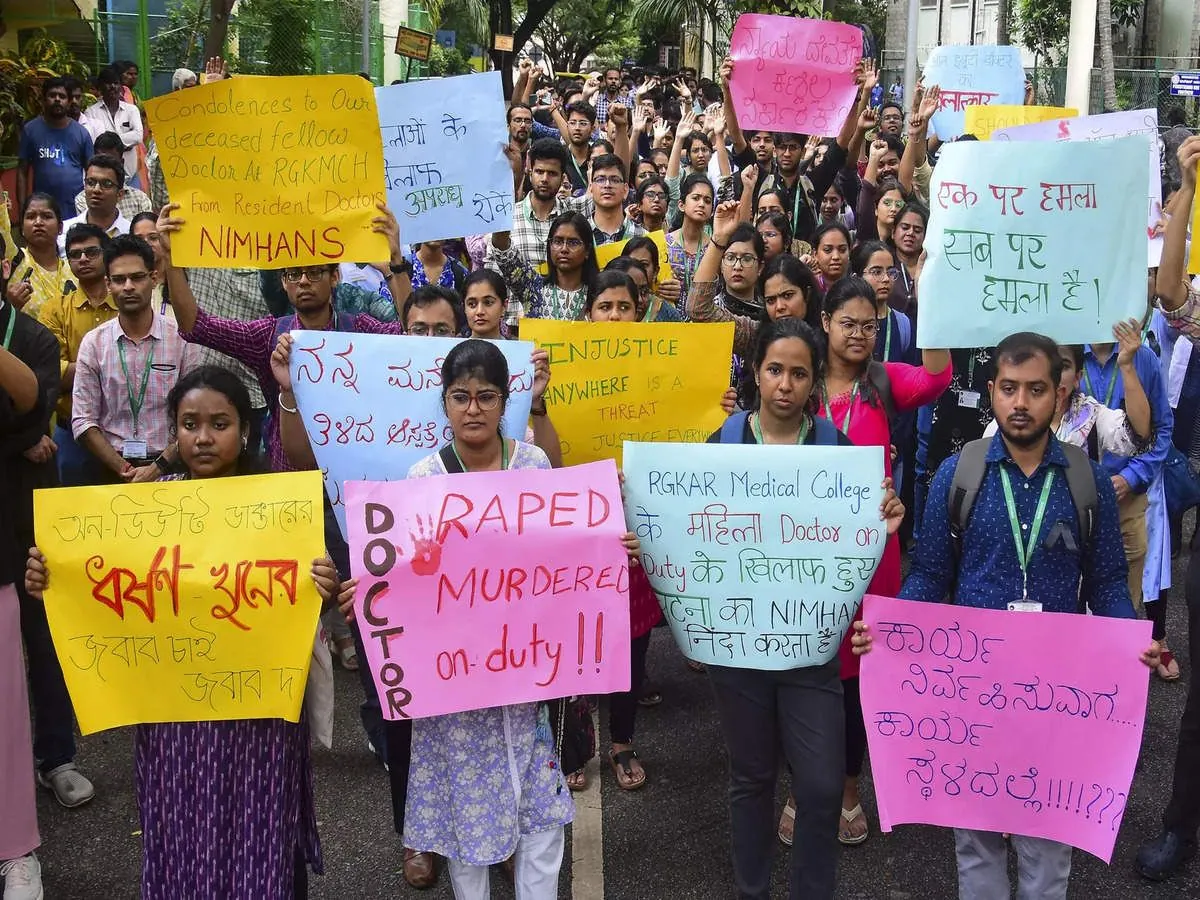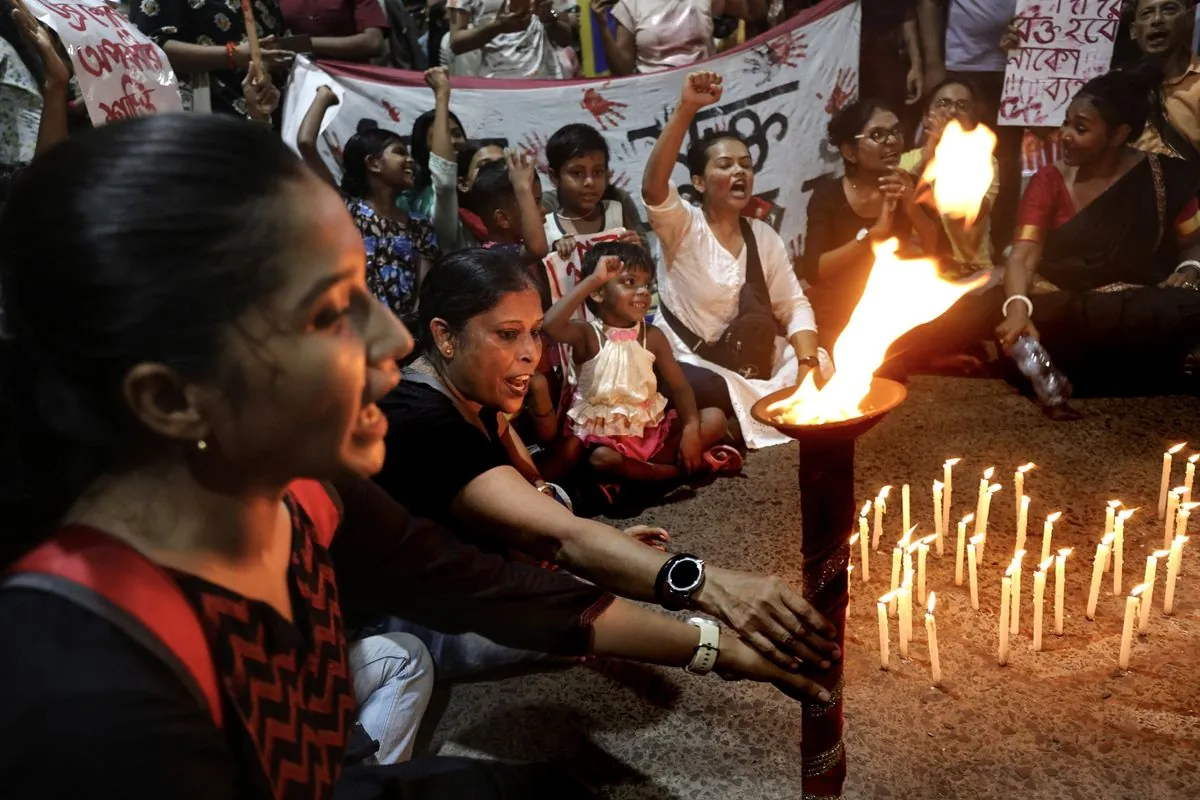West Bengal Doctors Defy Court Order, Continue Strike Over Colleague's Murder
Junior doctors in West Bengal persist with their strike, demanding justice for a murdered trainee and improved hospital security, despite a Supreme Court deadline to resume work.

In a display of solidarity and determination, junior doctors in West Bengal, India, are maintaining their strike action, defying a Supreme Court order to return to work. The protest, which began following the tragic death of a trainee doctor on August 9, 2024, has now entered its second month, highlighting persistent concerns about safety in healthcare facilities and the broader issue of violence against women in India.
The West Bengal Junior Doctors' Front, representing approximately 7,000 physicians, has stated that they will only "consider" the court's directive if their demands are addressed. These demands include enhanced security measures at hospitals, such as increased security personnel and the installation of CCTV cameras, as well as improved patient services in government healthcare facilities.
"We don't see a single CCTV camera being installed after the incident. There is no rest room, no separate toilets for men and women."
The strike has garnered significant attention, with demonstrations spreading beyond India's borders. On the weekend prior to September 10, 2024, thousands of Indians in 25 countries, including the United States and Japan, staged protests in support of the cause.

This incident has reignited discussions about sexual violence in India, a persistent issue despite the implementation of stricter laws following the notorious 2012 New Delhi gang rape and murder case. Rights activists argue that this recent attack further exemplifies the ongoing challenges faced by women in the country.
The strike also sheds light on the broader issues within India's healthcare system, which, despite being one of the largest in the world, continues to grapple with infrastructure and resource challenges. The demands of the striking doctors reflect these systemic problems, including inadequate security and substandard facilities for medical professionals.
As of September 10, 2024, authorities have made two arrests in connection with the crime: a police volunteer suspected of committing the act, and the former principal of R.G. Kar Medical College and Hospital on corruption charges. However, the doctors maintain that these actions are insufficient and continue to press for more comprehensive reforms.
The Supreme Court's involvement underscores the gravity of the situation, with the highest judicial body in India setting a deadline of September 11, 2024, for the doctors to resume their duties or face potential "adverse action." This ultimatum has further intensified the standoff between the medical professionals and the authorities.
As the strike continues, its impact reverberates through West Bengal's healthcare system, affecting patient care in a state with a population exceeding 90 million. The ongoing protest also raises questions about the balance between the right to strike and the essential nature of medical services, particularly in a country facing significant healthcare challenges.
The situation in West Bengal serves as a stark reminder of the complex interplay between professional rights, public safety, and the pursuit of justice in contemporary India. As the deadline approaches, all eyes are on the state government and the striking doctors, waiting to see how this impasse will be resolved.


































